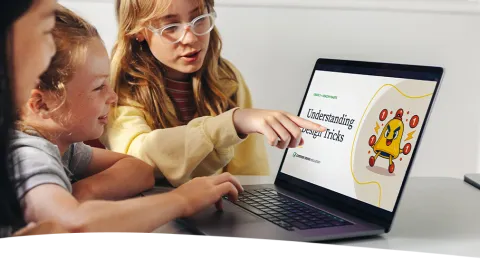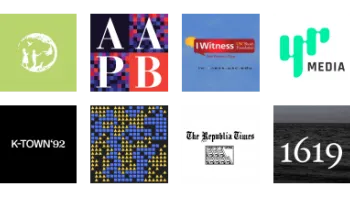
Digital Citizenship Week is October 20–24!
Join teachers worldwide to promote a healthy, positive approach to media and tech.
Take a look inside 5 images
Harmony Square
Pros: Creative, clever approach is experiential rather than didactic.
Cons: Needs more context and supporting materials for the classroom.
Bottom Line: This game-based approach can be an innovative part of your media literacy toolkit.
Though there's a research study that supports its efficacy, Harmony Square will require you to incorporate other learning experiences for it to be truly useful in a classroom. For example, articles and statistics about the influence of social media in election campaigns or in shaping people's view of vaccinations combined with an actual sampling of posts from common social media sites (e.g., Facebook, Instagram, Twitter, etc.) will help students analyze how the actions they take in the Harmony Square game may be playing out in real life.
Because the game focuses on five specific manipulation methods, you continue the role-play approach by challenging students to use those methods to come up with their own manipulative posts about a range of topics. Then, have students find examples of posts in their actual feeds to share and examine together as a class. Make media literacy an ongoing discussion and encourage kids to always think critically about what they see online. Teachers should note that, because the game casts the player as the manipulator, it might encourage some kids to embrace being a troll and feel that the game is granting them permission. So, it might be helpful to set some expectations and ask kids why the developers created the game the way they did.
Harmony Square is a web-based game developed in partnership with several government agencies in which players pretend to be a Chief Disinformation Officer trying to spread fake news with viral posts, inflammatory language, paid followers, and bots in order to propagate a divisive message in the lovely neighborhood of Harmony Square. Through the game, users learn how social media, bad intentions, and news intersect to manipulate public opinion. Users are presented with choices about what to post and which tools to use to sow discord (and get online attention through likes and followers). The more manipulative you are, the more points you earn. Players learn about five types of manipulation: trolling, using "emotional language, polarizing audiences, spreading conspiracy theories, and artificially amplifying the reach of their content through bots and fake likes." Before and after playing, users take a short quiz that measures their evaluation of social media posts. Placing players in the role of media manipulator is meant to "inoculate" them against these tactics, and one study suggests that it has some efficacy.
As teachers address media literacy, they make sure students know that lots of online posts are artificial and designed to manipulate us. How that all actually works, however, can be difficult to teach in a way that won't make kids roll their eyes. With Harmony Square, you have a legitimate teaching tool that will help students understand by doing.
By engaging in the manipulative tactics that shape opinions on everything from Twitter to Facebook in a game-based environment, students can better understand some of the forces at play in their online lives. It's a fun, relatable way of helping students understand a complex process. And while some teachers might hesitate at allowing students to take on the role of manipulator, it's a clever way to let students see behind the curtain without the instruction feeling didactic. Teachers will still need to supplement learning with readings, discussions, and analysis, but Harmony Square can be an effective part of media literacy learning.














